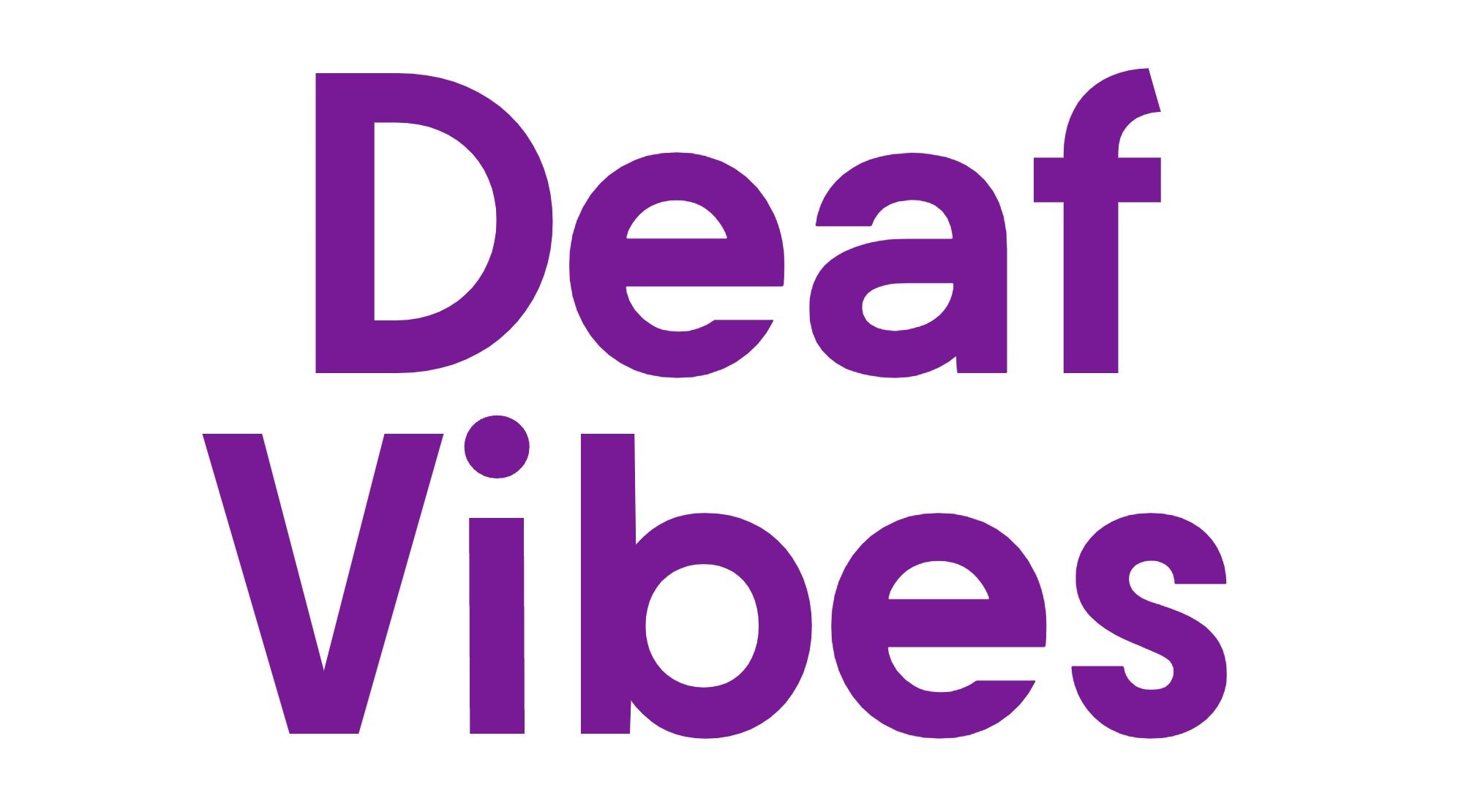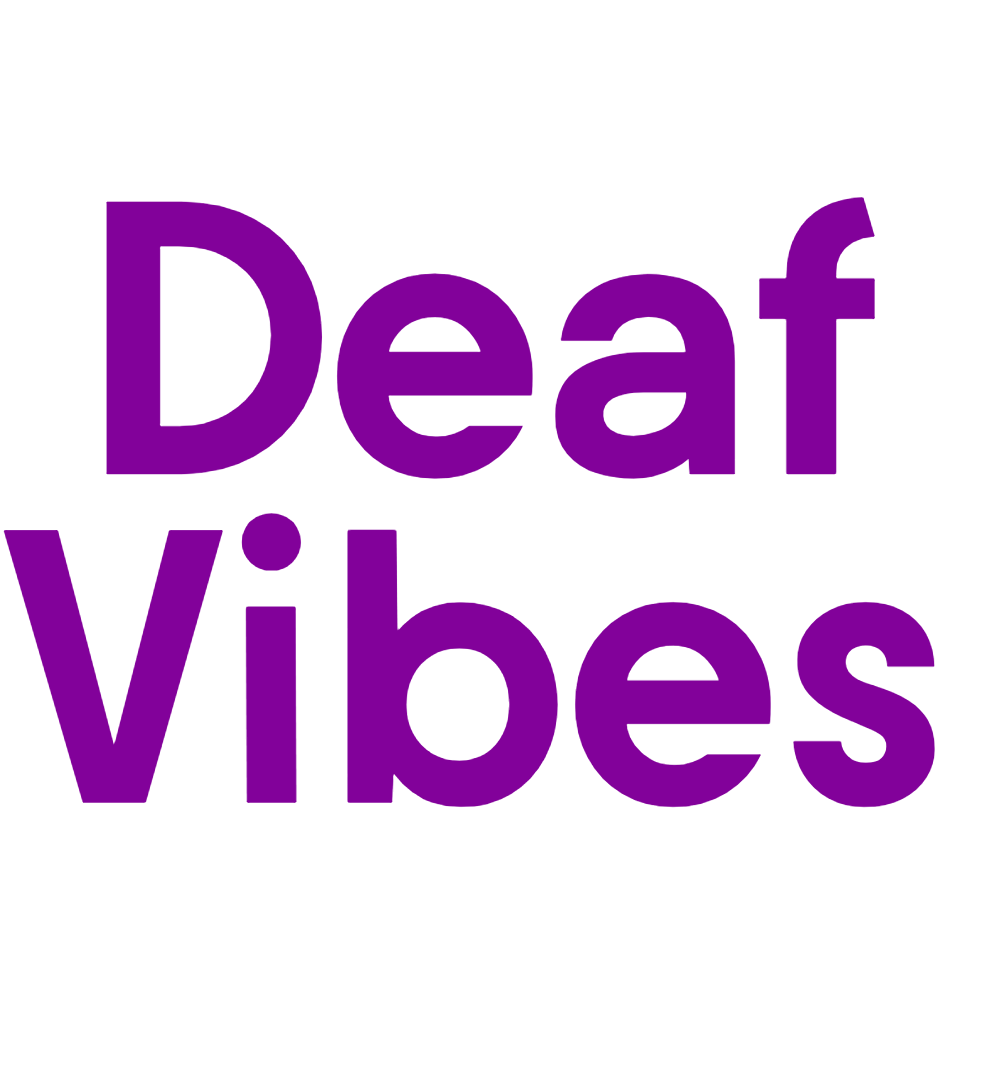Therapies and Interventions
What CPT Code Covers Speech Therapy Evaluations?
Unravel the mystery of CPT codes for speech therapy evaluations to streamline billing and documentation – dive deeper for insights!
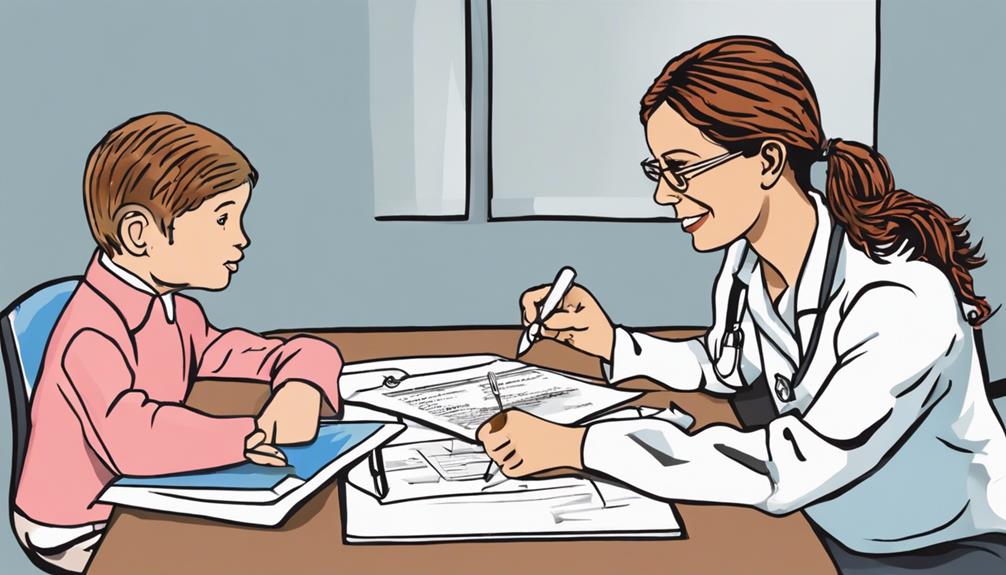
When it comes to evaluations for speech therapy, it is important to know which CPT code to utilize in order to ensure precise billing and compliance.
While CPT code 92521 addresses speech fluency evaluations, there are nuances to consider within the realm of speech therapy coding.
By delving into the specifics of CPT codes related to speech therapy, we can navigate the complexities of reimbursement and ensure that the services provided are properly documented.
Let's explore how selecting the appropriate CPT code can optimize the billing process and enhance communication regarding speech therapy evaluations.
Key Takeaways
- CPT codes like 92507, 92521, and 92523 cover different aspects of speech therapy evaluations.
- Accurate use of these codes ensures thorough assessment of speech fluency, sound production, and language skills.
- Proper coding and documentation are essential for maximizing revenue and ensuring compliance in speech therapy services.
- Staying updated on CPT codes, billing best practices, and compliance standards is crucial for successful speech therapy evaluations.
Overview of CPT Codes
Understanding the structure and purpose of CPT codes is crucial for navigating the complexities of billing and documentation in speech therapy evaluations. In the realm of speech therapy, specific CPT codes play a vital role in accurately capturing the nuances of different evaluation components.
For instance, CPT code 92521 focuses on assessing speech fluency, while 92522 targets speech sound production. Moving forward, CPT code 92523 encompasses evaluations related to speech sound production and expressive language, providing a comprehensive view of a patient's communication abilities.
Furthermore, CPT code 92524 is specifically designed for evaluating voice and resonance issues in speech therapy sessions.
These codes serve as a roadmap for speech therapists, guiding them through the evaluation process and ensuring that all aspects of a patient's speech and communication skills are thoroughly assessed. By understanding the nuances of each specific CPT code, therapists can accurately document their findings, bill for services rendered, and ultimately provide the best possible care for their patients.
CPT Code 92507 Explanation

Speech therapists employ CPT Code 92507 for individual therapy sessions, focusing on the evaluation and treatment of speech, language, voice, communication, and auditory processing disorders. This specific code is crucial for addressing speech-related conditions through comprehensive assessment and targeted intervention. When utilizing CPT Code 92507 during speech therapy sessions, therapists ensure that the services provided align accurately with the billing and documentation requirements.
- Comprehensive Evaluation: CPT Code 92507 allows speech therapists to conduct thorough assessments to identify the specific speech and language challenges individuals are facing.
- Tailored Treatment: With this code, therapists can tailor treatment plans to address each individual's unique communication needs effectively.
- Focused Intervention: By using CPT Code 92507, therapists can implement focused interventions aimed at improving speech and communication impairments efficiently.
Ensuring the appropriate use of CPT Code 92507 is essential for providing high-quality care and facilitating optimal outcomes for individuals seeking speech therapy services.
Understanding CPT Code 92521
Pivoting from the evaluation and treatment of speech, language, and communication disorders addressed by CPT Code 92507, speech therapists utilize CPT Code 92521 to specifically focus on assessing speech fluency in therapy sessions.
This code is crucial for the evaluation of speech fluency and the assessment of fluency disorders in speech therapy. It's tailored for individual evaluations, allowing speech therapists to document and track progress effectively.
Understanding the components and criteria outlined in CPT Code 92521 is essential for accurate billing in speech therapy evaluations. By following these guidelines, speech therapists can ensure that their services are properly documented and billed, facilitating the provision of quality care to individuals with speech fluency challenges.
Accurate billing practices not only benefit the therapist but also contribute to a streamlined and efficient healthcare system.
Decoding CPT Code 92523
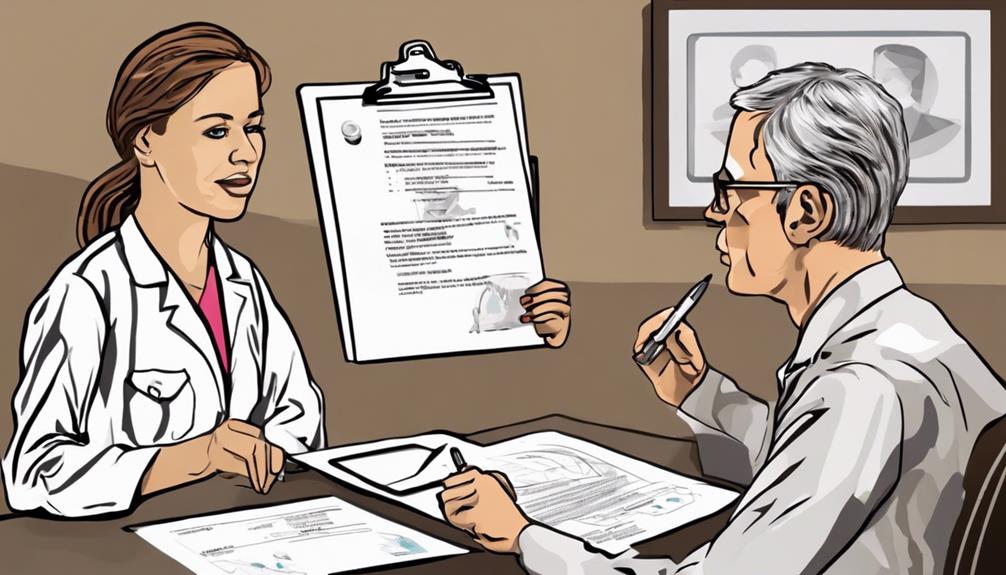
When using CPT Code 92523 for speech therapy evaluations, it's important to consider the combined assessment of speech sound production and expressive language abilities. This code allows for a comprehensive evaluation of both speech and language skills in individuals.
To ensure accurate billing and coding, it's crucial to follow guidelines set by ASHA and understand the specifics of CPT Code 92523. Here are some key points to remember:
- Proper documentation is essential to support the need for a combined evaluation.
- If only expressive language abilities are assessed without speech sound production, consider applying modifier -52 to CPT Code 92523.
- Accurate code selection is crucial for billing purposes and to reflect the services provided accurately.
Speech Therapy Evaluation Process
As speech therapists, we understand the significance of utilizing assessment tools and carefully considering diagnostic criteria during the evaluation process. These tools and criteria provide us with valuable insights into our patients' speech fluency, sound production, expressive language, and overall communication abilities.
Assessment Tools Used
Utilizing a variety of assessment tools is crucial in the speech therapy evaluation process to accurately identify and address speech, language, and communication challenges. In our practice, we rely on a combination of standardized tests, informal assessments, and interviews to gain a comprehensive understanding of our patients' needs. Here are three key assessment tools we commonly use:
- Standardized tests like the Goldman-Fristoe Test of Articulation and Clinical Evaluation of Language Fundamentals (CELF).
- Informal assessments such as language sampling and play-based assessments.
- Evaluation tools like the Peabody Picture Vocabulary Test (PPVT) that help us develop individualized treatment plans tailored to each individual's unique communication challenges.
Diagnostic Criteria Considered
In our evaluation process for speech therapy, we carefully consider specific diagnostic criteria that help us understand and address our patients' speech, language, and communication challenges. The CPT code 92523 is instrumental in evaluating speech sound production and expressive language abilities during speech therapy assessments. This code enables us to assess crucial aspects such as speech sound production and language skills, providing essential insights for tailored treatment plans.
Additionally, the assessment of speech fluency, covered by CPT code 92521, plays a significant role in our comprehensive evaluation process. By utilizing these specific diagnostic criteria, we can effectively pinpoint areas of concern and develop targeted interventions to support individuals in improving their communication skills.
Billing for Speech Therapy Evaluations

Proper documentation of evaluation findings plays a vital role in ensuring accurate billing for speech therapy evaluations. Understanding the CPT codes available is crucial for proper reimbursement and effective treatment planning. Here are some key points to consider when billing for speech therapy evaluations:
- Use the specific CPT Code 92521 for the evaluation of speech fluency to accurately reflect the services provided.
- Thoroughly document the assessment of communication disorders to support the medical necessity of the evaluation.
- Develop a detailed treatment plan based on the evaluation codes to outline the goals and interventions for the patient's speech therapy.
Reimbursement Guidelines for Speech Therapy
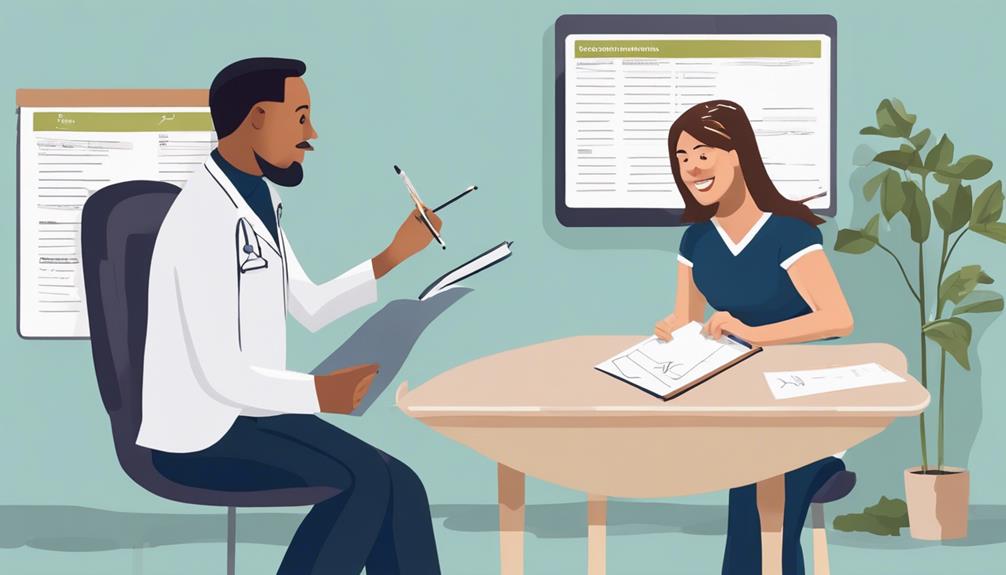
Transitioning from the importance of accurate billing for speech therapy evaluations, understanding the reimbursement guidelines is crucial for speech therapists to ensure proper compensation for their services.
Reimbursement for speech therapy evaluations is typically determined by specific CPT codes such as 92507, 92521, and 92523, with rates set by Medicare and third-party payers. To secure accurate reimbursement, speech therapists must focus on correct coding practices and thorough documentation to justify the services provided during evaluations.
Compliance with CMS guidelines and adherence to payer-specific policies are paramount to navigate the complexities of reimbursement in speech therapy. By staying informed and following established protocols, speech therapists can enhance their chances of receiving fair compensation for their valuable evaluation services.
Mastering these reimbursement guidelines not only benefits the therapists themselves but also ensures that patients continue to receive high-quality speech therapy evaluations without financial barriers.
Importance of Proper Coding

Understanding the significance of accurate coding in speech therapy evaluations is crucial for ensuring proper billing and reimbursement. Selecting the appropriate CPT code, such as 92521, is vital for transparent documentation of therapy progress. Here are three key reasons why proper coding is essential:
- Maximize Revenue: By using the correct codes for speech therapy services, therapists can ensure they're billing accurately and not missing out on potential revenue opportunities.
- Maintain Compliance: Following the guidelines and using the appropriate CPT code, like 92521 for speech fluency evaluations, helps in complying with regulatory requirements and avoiding billing errors.
- Ensure Reimbursement: Accurate coding increases the chances of reimbursement approval, providing financial stability for the therapy practice and allowing for continued quality care for patients.
Speech Therapy Evaluation Documentation

When documenting speech therapy evaluations, our focus is on capturing the required evaluation components and ensuring proper record-keeping practices.
This meticulous documentation not only guarantees accurate billing but also aids in compliance with coding guidelines.
Understanding the critical role of detailed documentation is paramount for successful reimbursement and effective speech therapy services.
Required Evaluation Components
In conducting speech therapy evaluations, we prioritize thorough documentation of the required evaluation components, ensuring a comprehensive understanding of the patient's speech and language needs. When evaluating a patient, we focus on the following key components:
- Detailed patient history to understand the individual's background and potential contributing factors.
- Assessment of speech sound production to identify any articulation or phonological difficulties.
- Evaluation of expressive language skills to determine the patient's ability to convey thoughts and ideas effectively.
Each of these components plays a crucial role in forming an accurate diagnosis and creating personalized treatment plans tailored to the patient's specific speech therapy needs.
Proper Record Keeping
Proper record keeping in speech therapy evaluations is crucial for ensuring accurate billing and reimbursement. Detailed documentation, including the patient's history, evaluation results, treatment plan, progress notes, and any changes in the patient's condition, is essential.
Speech therapists must thoroughly document the evaluation process to support the medical necessity of the services provided. Accurate and timely documentation is vital for compliance with insurance requirements and effective communication with other healthcare providers.
Maintaining organized and comprehensive records is crucial for tracking patient progress, justifying treatment interventions, and ensuring continuity of care. By prioritizing meticulous record-keeping practices, speech therapists can uphold the highest standards of care and meet the diverse needs of their patients while also meeting regulatory demands.
Common Billing Mistakes to Avoid

To prevent billing mistakes in speech therapy evaluations, ensure accurate documentation of the evaluation process. Here are some common billing mistakes to avoid:
- Using incorrect CPT codes: Make sure to use the appropriate CPT code for speech therapy evaluations to avoid claim denials.
- Lack of proper documentation: Without detailed documentation of the evaluation process, billing for speech therapy evaluations may not be valid.
- Incorrect application of modifiers: Applying modifiers incorrectly to CPT codes for speech therapy evaluations can lead to billing errors and potential reimbursement issues.
Coding Challenges in Speech Therapy

Navigating the intricate world of coding in speech therapy can present numerous challenges for practitioners and billing specialists alike. Selecting the correct CPT codes for speech therapy evaluations, such as 92521, 92522, 92523, and 92524, requires a deep understanding of the specific components being assessed, like speech fluency, speech sound production, expressive language, and voice and resonance. Proper documentation is crucial to support the chosen evaluation code and ensure accurate billing.
One of the primary coding challenges in speech therapy lies in making evaluations distinct and tailored to each speech disorder under assessment. By mastering the nuances of different evaluation codes, practitioners can optimize reimbursement while staying compliant with billing regulations. These challenges underscore the importance of continuous education and attention to detail in the coding process to deliver high-quality care and maximize financial sustainability in speech therapy practices.
Compliance With CPT Codes
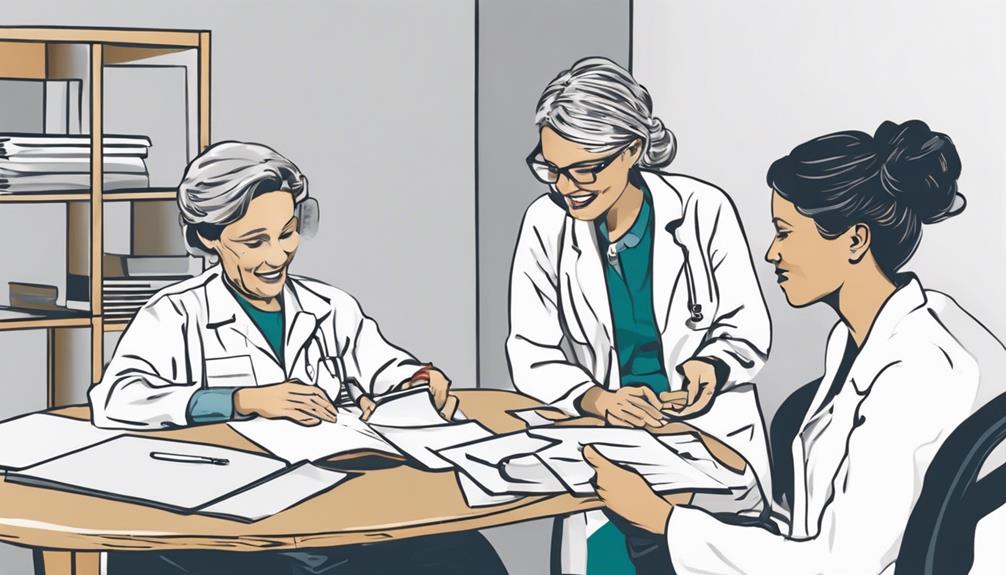
Ensuring adherence to CPT codes is essential for accurate billing and reimbursement in speech therapy services. Compliance with these codes is crucial to avoid claim denials and billing errors.
Here are three key points to consider regarding compliance with CPT codes in speech therapy evaluations:
- Selecting the Correct Code: Speech therapists must accurately choose the appropriate CPT code for each evaluation session to reflect the services provided accurately.
- Documenting Carefully: Proper documentation is vital to support the CPT code chosen and ensure compliance with billing regulations.
- Staying Informed: Understanding CPT guidelines and staying updated on any changes is necessary to maintain compliance and maximize reimbursement for speech therapy services.
Maximizing Reimbursement With Accurate Coding

Maximizing reimbursement through accurate coding is essential for optimizing revenue in speech therapy services. Proper utilization of CPT code 92507 is crucial for ensuring that speech therapy evaluation services are accurately documented and billed, leading to proper reimbursement. Understanding the nuances of CPT code 92507 is key to maximizing reimbursement and efficiently managing the revenue cycle in speech therapy practice.
To help you navigate the world of accurate coding and reimbursement in speech therapy, we have compiled a handy reference table below:
| CPT Code | Description |
|---|---|
| 92507 | Speech therapy evaluation |
Updates and Changes in CPT Codes
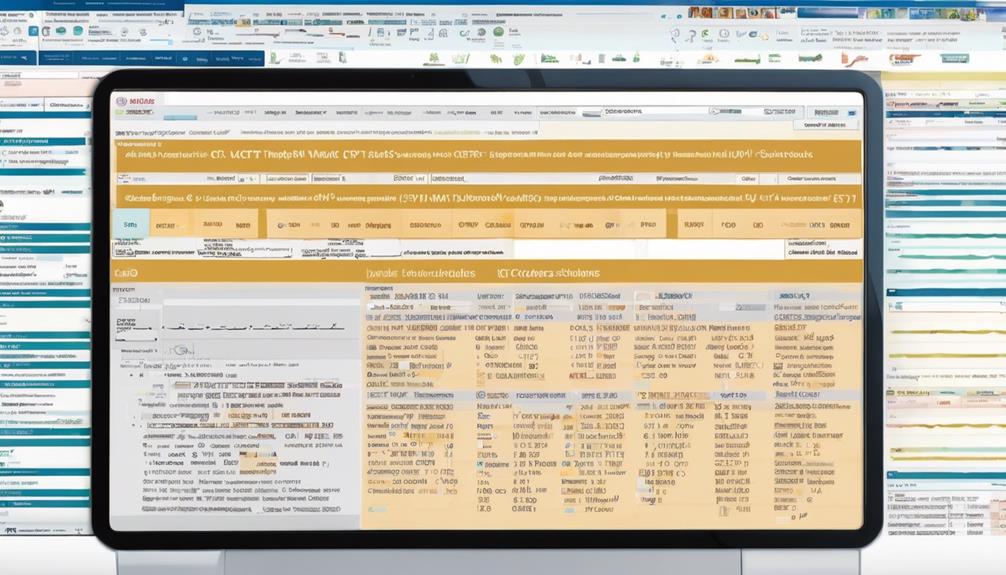
Amid the ever-evolving landscape of healthcare services, staying informed about updates and changes in CPT codes is paramount for speech therapists to accurately bill for evaluations. Keeping abreast of the latest modifications ensures that speech therapists can effectively navigate the complexities of billing procedures and provide optimal care for their patients.
Here are three essential points to consider regarding updates and changes in CPT codes:
- Regularly review the most recent changes in evaluation codes to ensure accurate billing practices.
- Seek guidance from reputable sources like the American Speech-Language-Hearing Association (ASHA) for updated information on CPT coding guidelines.
- Stay vigilant for any new updates or modifications in CPT codes related to speech therapy evaluations to avoid billing discrepancies and maintain compliance with industry standards.
Expert Tips for Coding Speech Therapy Services

As speech therapists navigating the complexities of billing procedures, understanding expert tips for accurately coding speech therapy services is essential for ensuring proper reimbursement and compliance with industry standards.
When it comes to billing for speech fluency evaluations, utilizing CPT code 92521 is paramount. Proper documentation of the evaluation process is crucial to support the use of this specific CPT code and ensure reimbursement for the services provided.
By familiarizing ourselves with CPT code 92521 and mastering the art of accurate billing, we can streamline the billing process for speech therapy evaluations. Remember, attention to detail in documenting evaluations and selecting the appropriate CPT code is key to receiving the reimbursement deserved for the valuable speech therapy services we offer.
Stay informed, stay diligent, and let's continue to provide exceptional care to those we serve through our expertise in speech therapy services.
Frequently Asked Questions
What Is the CPT Code for Speech Therapy Evaluation?
Sure thing!
When looking for the CPT code for a speech therapy evaluation, it's important to know that the code 92521 specifically pertains to assessing speech fluency.
This code helps speech therapists determine treatment needs and accurately document their evaluations for billing purposes.
Understanding and correctly using CPT code 92521 is crucial for ensuring proper reimbursement and coding of speech fluency assessments.
What Is the CPT Code for Evaluation of Speech Fluency?
We know the CPT code for evaluating speech fluency is 92521. This code focuses on assessing speech rhythm and flow in individuals. Speech therapists use it to diagnose speech fluency disorders and plan treatments effectively.
What Is the CPT Code for a Speech Swallow Evaluation?
We use CPT code 92610 for speech swallow evaluations. This code is common for outpatient swallowing assessments and may involve specialized equipment and training.
Speech therapists can pair 92610 with other codes if needed tools are used. Accurate billing and reimbursement rely on correctly applying CPT code 92610. It's crucial for ensuring proper documentation and payment.
What Is CPT Code 97130 for Speech Therapy?
We use CPT Code 97130 for cognitive skills development in speech therapy. It focuses on enhancing attention, memory, problem-solving, and executive functions through skilled interventions.
This code is crucial for accurately billing and documenting cognitive therapy services. Speech therapists rely on CPT Code 97130 to provide targeted interventions for improving cognitive abilities.
It's essential to ensure proper utilization of this code for effective therapy services.
Can Speech Therapy Help Improve Hearing Quality for Individuals Using Over-the-Ear Hearing Aids?
Yes, speech therapy can significantly improve the hearing quality of individuals using overtheear hearing aids. Through various exercises and techniques, speech therapy can help patients better understand and interpret speech, ultimately enhancing their overall hearing experience with the use of overtheear hearing aids.
Conclusion
In conclusion, it's crucial for speech therapists to accurately utilize CPT code 92521 for speech therapy evaluations to ensure proper reimbursement and compliance.
By understanding and adhering to coding guidelines, therapists can streamline the billing process and effectively communicate the services provided.
Remember, accuracy in coding is key to maximizing reimbursement and providing quality care.
Let's navigate the complexities of coding together to ensure the best outcomes for our patients.
Therapies and Interventions
Speech Therapy SOAP Note Example: A Detailed Case Study
Analyze the transformative impact of detailed SOAP notes in speech therapy with a comprehensive case study, unraveling the secrets to enhanced patient progress.

As speech therapists, we know that 75% of communication disorders go undiagnosed in children. Understanding the impact of detailed SOAP notes in speech therapy sessions is crucial for patient care and treatment outcomes.
In a recent case study, we dissect a comprehensive patient journey, from initial assessment to outcome evaluation, showcasing the power of meticulous documentation in enhancing therapy effectiveness and patient progress.
Dive into this detailed case study to uncover the transformative role of SOAP notes in speech therapy practice.
Key Takeaways
- Tailored interventions and progress tracking are essential for effective speech therapy.
- Setting specific, measurable goals is crucial for client progress and treatment success.
- Collaborating with the client and adjusting interventions lead to improved outcomes.
- Continuous assessment and reflection ensure interventions align with client needs for optimal results.
Case Background
In assessing the case background of the 7-year-old child with a history of receptive and expressive language delays, it's evident that the child faces challenges in following multi-step directions and articulating thoughts effectively. These difficulties have manifested in concerns raised by the child's parents regarding academic performance and social interactions.
Previous evaluations have highlighted below-average performance in language and communication skills, prompting a referral for speech therapy from the child's school. Through the implementation of SOAP notes in therapy sessions, we aim to track the child's progress systematically, document treatment plans, and assess the effectiveness of interventions.
Initial Assessment Findings

Following the initial assessment, the child's challenges with receptive and expressive language, phonological awareness, and social communication were notably identified.
The 6-year-old displayed moderate delays in both receptive and expressive language skills, struggling with comprehension of multi-step directions and coherence in expressing thoughts. Assessment tools highlighted significant difficulties in phonological awareness and speech sound production, indicating potential issues with articulation and sound discrimination.
During play-based assessments, observations revealed challenges in social communication and pragmatic language use. Standardized language tests further emphasized the need for targeted intervention in vocabulary development and sentence structure to address the identified delays effectively.
These assessment findings provide a comprehensive understanding of the child's current communication abilities and areas requiring focused speech therapy intervention. By recognizing these challenges early on, tailored strategies can be implemented to support the child in developing essential language skills for improved communication and overall academic success.
Subjective Information
After identifying the child's challenges during the initial assessment, eliciting subjective information from the client becomes crucial in understanding their unique perspective and experiences during speech therapy sessions. This subjective information provides valuable insights that guide our therapeutic approach. Here's how we gather and utilize this information:
- Client-Reported Concerns: Listening attentively to the client's concerns allows us to address their specific needs effectively.
- Feelings: Understanding the client's emotions helps us create a supportive and empathetic environment for therapy.
- Mood: Monitoring the client's mood enables us to adjust our sessions to ensure they're comfortable and engaged.
- Therapy Goals: Documenting the client's aspirations and goals helps us tailor our interventions to promote progress and achievement.
Objective Data

Gathering objective data in a speech therapy session involves capturing measurable observations, test results, and specific client responses to assess progress and tailor interventions effectively. This data provides concrete information on various aspects such as speech intelligibility, articulation accuracy, fluency patterns, voice quality, and swallowing function. By focusing on these measurable parameters, we can track progress, identify areas for improvement, and measure the effectiveness of interventions in speech therapy. The objective data obtained during sessions offers a clear picture of the client's performance and response to therapy, which is crucial for treatment planning and goal setting. Including this data in SOAP notes ensures comprehensive and evidence-based documentation of the client's session and progress in speech therapy.
| Measurable Observations | Test Results | Client Responses |
|---|---|---|
| Speech intelligibility | Articulation accuracy | Engagement during exercises |
| Fluency patterns | Voice quality | Reaction to therapeutic techniques |
| Swallowing function | Progress in speech exercises |
Assessment Summary
As we analyze the evaluation findings, we gain valuable insights into the client's communication strengths and challenges. Developing a treatment plan that's tailored to address these specific needs is crucial for effective therapy.
Implementing progress monitoring strategies allows us to adjust interventions and track the client's improvement over time.
Evaluation Findings Analysis
During the assessment summary portion of the SOAP note, we meticulously analyze the evaluation findings to derive insights into the client's progress and determine recommendations for ongoing treatment.
- Objective Information: The assessment summary relies heavily on the objective data gathered during the evaluation process.
- Comparison: Contrasting the client's current status with the initial evaluation findings is essential in understanding the progress made.
- Progress: The assessment summary presents a detailed account of the client's advancements or any stagnation observed based on the evaluation results.
- Recommendations: Guided by the assessment summary, tailored recommendations for continued treatment and therapy interventions are outlined to further support the client's progress and development.
In the assessment summary, we aim to provide a comprehensive overview of the client's journey and offer strategic guidance for their ongoing speech therapy needs.
Treatment Plan Development
Analyzing the assessment summary findings propels us towards formulating a strategic treatment plan that addresses the client's speech and language therapy needs comprehensively.
The therapy plan development stage involves setting individualized goals based on the assessment summary, selecting appropriate intervention strategies, and establishing methods for progress tracking.
By aligning the therapy plan with the client's specific communication strengths and weaknesses, we can tailor intervention techniques to suit their unique needs effectively. This process ensures that the therapy sessions are structured to enhance communication abilities and improve the client's quality of life.
Additionally, the treatment plan serves as a roadmap for therapy sessions, enabling us to set realistic expectations and measure the effectiveness of interventions over time.
Progress Monitoring Strategies
Implementing standardized assessment tools enables us to track progress effectively in speech therapy sessions, ensuring objective monitoring of changes in speech intelligibility, fluency, voice quality, and articulation accuracy.
- Utilize standardized assessment tools for consistent progress tracking.
- Monitor speech intelligibility, fluency, voice quality, and articulation accuracy.
- Document client responses to different therapeutic interventions for ongoing assessment.
- Track improvements in communication skills through measurable goals and data points.
Treatment Plan Development

As we move into the Treatment Plan Development phase, we focus on:
- Goal Setting Strategies
- Therapy Techniques Selection
- Progress Monitoring Methods
These points are crucial in tailoring interventions to address the client's specific speech therapy needs effectively.
Goal Setting Strategies
In developing a comprehensive speech therapy treatment plan, our focus is on establishing specific, measurable, achievable, relevant, and time-bound goals tailored to address the individual's speech and communication needs through collaboration with the client and their family.
When setting goals, we prioritize based on the client's abilities, challenges, and desired outcomes. To effectively track progress, we break down larger goals into smaller, manageable steps during therapy sessions.
It's crucial to regularly reassess and adjust goals as needed to ensure the client is making meaningful progress in their speech therapy journey. By following these strategies, we can create a roadmap that guides the therapy process and leads to successful outcomes for our clients.
Therapy Techniques Selection
To effectively tailor our therapy techniques for optimal client progress and outcomes, we carefully select evidence-based practices that align with the individual's specific speech, language, communication, or swallowing challenges and goals. By considering the client's preferences, feedback, and progress, we ensure a client-centered approach that enhances therapy outcomes. Our therapy techniques selection process involves continuous assessment and adjustment to best meet the client's evolving needs. The table below provides a structured overview of how we choose and adapt therapy techniques based on the client's requirements and desired outcomes.
| Therapy Techniques Selection | Details |
|---|---|
| Evidence-Based Practices | Incorporating research-backed methods for effective interventions. |
| Client Preferences | Considering individual likes, dislikes, and comfort levels. |
| Tailoring Techniques | Adapting approaches to address specific communication challenges. |
| Outcome Optimization | Continuously evaluating progress to enhance therapy effectiveness. |
Progress Monitoring Methods
Implementing effective progress monitoring methods is essential in developing and evaluating treatment plans for clients undergoing speech therapy.
- Tracking Improvement: Monitoring clients' progress over time is crucial.
- Setting Specific Goals: Developing treatment plans involves establishing clear objectives for clients.
- Data Collection Methods: Utilizing standardized assessments, observations, and self-reports aids in monitoring progress.
- Evaluating Responses: Regularly assessing clients' reactions to interventions helps gauge the effectiveness of the treatment plan.
Intervention Strategies

Utilizing tailored intervention strategies in speech therapy involves implementing a range of techniques to address specific speech and language goals. These strategies may encompass articulation drills to target speech sound accuracy, phonological awareness activities to enhance sound awareness, and fluency techniques to improve the flow of speech. By tailoring interventions based on individual assessment findings, speech therapists can effectively address the unique needs of each client. Techniques such as modeling, providing visual cues, and encouraging repetition play crucial roles in enhancing speech production and comprehension skills.
Individualized intervention plans are crafted considering factors like the client's age, diagnosis, and communication requirements. By creating personalized plans, speech therapists can cater to the specific goals and challenges of each individual, resulting in more targeted and effective interventions. Monitoring progress throughout the intervention process is vital for assessing the effectiveness of the strategies employed and making necessary adjustments to ensure optimal outcomes in speech therapy practice.
Progress Monitoring
Tracking progress in speech therapy involves continuously monitoring changes in speech and language skills to assess the effectiveness of interventions and guide treatment planning. To ensure effective progress monitoring, we rely on specific data points that offer valuable insights into our clients' development:
- Accuracy in Completing Tasks: Monitoring how accurately clients complete speech and language tasks provides a tangible measure of their progress.
- Speech Intelligibility: Assessing speech intelligibility helps us gauge how well clients are able to communicate and be understood.
- Response to Interventions: Tracking clients' responses to different therapy interventions allows us to tailor our approach to suit their individual needs.
- Regular Assessments: Conducting regular assessments is crucial for evaluating the impact of therapy interventions and making informed adjustments to treatment plans.
Adjustments in Therapy

In therapy, adapting techniques based on client progress is essential for optimizing treatment outcomes and addressing individual needs effectively. Adjustments in therapy involve modifying treatment strategies, goals, or materials to better suit the client's evolving requirements.
Flexibility within therapy sessions allows for personalized adjustments, ensuring treatment effectiveness is maximized. Therapists can respond to changes in the client's condition promptly, enhancing therapy outcomes through tailored interventions.
Continual assessment and feedback play a crucial role in guiding therapists to make appropriate adjustments during therapy sessions, ensuring that the client's progress is continually monitored and interventions are aligned with their current needs.
Family/Caregiver Involvement

Involving family and caregivers in speech therapy plays a critical role in enhancing the child's progress and the application of acquired skills. Here are key points highlighting the importance of family involvement and caregiver support in speech therapy:
- Empowering Caregivers: Educating caregivers on speech therapy techniques and strategies empowers them to support the child's communication development effectively.
- Consistency in Practice: Collaborating with family members ensures consistency in practicing therapy goals outside of sessions, reinforcing the learning process.
- Continuous Improvement: Providing caregivers with resources and tools for speech practice at home promotes continuous improvement in the child's communication skills.
- Progress Monitoring: Regular communication with caregivers allows for monitoring progress and adjusting therapy plans as needed, ensuring the child's development is on track.
Communication With Healthcare Team

We emphasize the importance of team collaboration in achieving optimal client outcomes.
Effective communication strategies are essential in aligning goals and providing comprehensive care.
Team Collaboration Importance
Collaboration with healthcare teams plays a pivotal role in ensuring comprehensive care for clients undergoing speech therapy. When team members work together effectively, the client benefits from a holistic treatment approach that considers all aspects of their well-being.
Communication among professionals fosters a multidisciplinary approach, leading to improved treatment coordination and outcomes. Consulting with specialists brings valuable insights and recommendations that can enhance the client's care plan.
In speech therapy SOAP notes, team collaboration is reflected in the shared commitment to providing the best possible care for the client. This coordinated effort embodies the essence of a patient-centered approach and underscores the importance of working together towards a common goal.
Effective Communication Strategies
Enhancing treatment outcomes relies significantly on maintaining effective communication channels with the healthcare team. Sharing relevant information and updates with the team improves treatment outcomes by ensuring coordinated care for the client.
Collaborating on treatment plans and progress tracking enhances overall therapy effectiveness, leading to better results. Clear communication plays a vital role in addressing any challenges or adjustments needed in the treatment plan promptly.
Regular team discussions are essential to ensure that all members are aligned on goals and strategies for the client's care, promoting a cohesive approach to therapy. Effective communication within the team is key to optimizing the client's progress and achieving successful therapy outcomes.
Outcome Evaluation

Outcome evaluation in speech therapy involves assessing the progress towards treatment goals by measuring improvements in speech intelligibility, fluency, voice quality, or swallowing function through documented data points. When evaluating outcomes in speech therapy, we focus on several key aspects:
- Progress Measurement: Tracking progress through quantitative measures provides insight into the effectiveness of interventions and helps adjust treatment plans accordingly.
- Treatment Goals: Evaluating outcomes allows us to determine if clients are meeting the goals set at the beginning of therapy, guiding further intervention strategies.
- Client Feedback: Incorporating client input in the evaluation process fosters a collaborative approach to therapy and ensures that treatment aligns with individual needs and preferences.
- Objective Measures: Utilizing standardized assessments and objective measures helps in documenting changes in communication or swallowing function objectively, supporting evidence-based practice.
Case Reflection

Reflecting on a complex case study in speech therapy requires a meticulous analysis of interventions and progress to inform subsequent treatment strategies effectively. In the case study we explored, the client showed significant progress through tailored interventions. The effectiveness of these interventions was evident in the client's improved speech clarity and articulation. However, continuous reflection is crucial to ensure that the treatment plan is adjusted according to the client's progress and needs.
Case Reflection Table:
| Intervention Effectiveness | Client Progress | Treatment Adjustments | Future Recommendations |
|---|---|---|---|
| High | Steady | Increased practice time | Continue with current plan and reassess in 2 weeks |
| Moderate | Rapid | Introduce new exercises | Consider group therapy sessions for social communication skills |
| Low | Slow | Simplify tasks | Collaborate with client's school for consistent support |
This detailed analysis showcases the importance of maintaining a good SOAP note to track client progress accurately and make informed decisions regarding treatment adjustments.
Frequently Asked Questions
How Do You Write a Good SOAP Note in Speech-Language Pathology?
When writing a good SOAP note in speech-language pathology, we focus on detailed subjective information about the client's concerns, mood, and goals, along with objective observations, interventions, and responses during therapy sessions.
We analyze progress towards treatment goals in the assessment section and outline specific next steps, recommendations, and strategies in the plan section for ongoing therapy.
Consistency, accuracy, and professionalism are crucial for effective communication and treatment planning.
How Do You Write a SOAP Case Note?
When writing a SOAP case note, we start by gathering subjective and objective details, evaluating progress, and outlining next steps.
It's crucial to be clear, concise, and accurate for effective communication and progress tracking.
By painting a vivid picture with our words, we aim to serve our audience with professional, detailed, and analytical language.
This approach ensures that our documentation supports the client's treatment journey effectively and compassionately.
What Is a SOAP Note for Receptive Language?
We document a client's ability to understand spoken language in a SOAP note for receptive language in speech therapy. This note includes observations on comprehension of verbal instructions, questions, and conversations.
Subjective notes may mention concerns about understanding, following directions, or responding appropriately to language.
Objectively, we detail tasks like identifying objects, answering questions, or following multi-step directions.
The assessment and plan sections analyze progress and outline strategies for improvement in receptive language skills.
What Does SOAP Stand for Speech Therapy?
Sure thing!
SOAP in speech therapy stands for:
- Subjective
- Objective
- Assessment
- Plan
This acronym helps us structure our notes effectively to track progress and improve client care.
By following the SOAP format, we ensure clear communication among healthcare providers and optimize therapy outcomes.
Understanding each section's role is crucial for creating thorough documentation and fostering better treatment plans.
Conclusion
In conclusion, navigating the intricate world of speech therapy documentation can feel like dancing through a maze of paperwork and protocols.
However, by embracing the SOAP note format and utilizing technology to streamline the process, speech-language pathologists can waltz their way to efficient, accurate, and high-quality patient care.
So, let's grab our metaphorical dancing shoes and spin our way to success in the world of speech therapy documentation!
Therapies and Interventions
Top 10 Montclair Speech Therapy Providers
Navigate the world of Montclair's top speech therapy providers, each offering unique expertise and specialized programs to enhance communication skills.

When seeking top-notch speech therapy services in Montclair, the quest for quality can be quite the challenge. With a plethora of providers vying for attention and trust, navigating the world of speech therapy can be overwhelming.
However, fear not, as we have curated a list of Montclair's premier speech therapy practitioners that excel in aiding individuals of all ages. From specialized programs to tailored approaches, these top 10 providers are sure to offer something unique and beneficial for those in need of speech therapy services.
Key Takeaways
- Leading providers offer specialized therapy for a spectrum of communication challenges.
- Evidence-based practices enhance communication skills effectively.
- High client satisfaction and positive testimonials reflect exceptional care.
- Notable speech pathologists and centers provide expert, tailored services.
Best Montclair Speech Therapy Providers
Looking for the top Montclair Speech Therapy providers that cater to a range of age groups and specialize in various speech and language disorders?
Montclair Speech Therapy, led by the esteemed Speech-Language Pathologist Lori Caplan-Colon, offers comprehensive services for infants, toddlers, children, and adults. With over 18 years of clinical experience, Lori ensures that each individual receives personalized care tailored to their specific needs. The practice focuses on evidence-based therapies for speech and language disorders, including specialized treatment for conditions such as Autism, pediatric feeding issues, swallowing disorders, and more.
Moreover, Montclair Speech Therapy stands out for accepting comprehensive insurance coverage, making quality therapy accessible to all. Whether you or your loved one require assistance with speech development, feeding challenges, or other communication difficulties, Lori and her team are dedicated to providing top-notch care in a supportive and nurturing environment. Trust Montclair Speech Therapy to deliver exceptional services for a wide range of speech and language needs.
Top-Rated Speech Therapists in Montclair

Among the diverse range of speech therapists in Montclair, their exceptional expertise shines through in their tailored approaches to addressing various speech and language disorders. These top-rated therapists have extensive experience working with both children and adults, offering individualized care through evidence-based practices.
Their specialization in treating conditions such as autism, apraxia, and developmental delays sets them apart in providing comprehensive care plans. With a keen focus on communication challenges, these therapists create inclusive therapies that cater to the unique needs of individuals in Montclair.
Leading Speech Therapy Services in Montclair
At our clinic, we understand the importance of expert speech therapists and specialized treatment programs in Montclair.
Our team is dedicated to providing individualized therapy sessions tailored to each person's unique needs.
We prioritize evidence-based practices to ensure comprehensive and effective treatment for speech and language disorders.
Expert Speech Therapists
In our community, expert speech therapists at Montclair Speech Therapy providers lead the way in delivering exceptional speech therapy services tailored to individuals of all ages. Led by licensed Speech-Language Pathologist Lori Caplan-Colon, our team offers specialized services for infants, toddlers, children, and adults. We focus on utilizing research-based therapies to address a wide range of conditions such as Autism, Apraxia, feeding and swallowing issues, traumatic brain injury, and voice disorders. Our commitment to providing comprehensive care ensures that each individual receives personalized treatment. Additionally, we work with various insurance providers to make our services accessible to all who need them.
| Expert Speech Therapists at Montclair Speech Therapy Providers |
|---|
| Specialized Services for Infants, Toddlers, Children, and Adults |
| Research-Based Therapies for Various Conditions |
| Comprehensive and Individualized Care |
| Acceptance of Various Insurance Providers for Accessibility |
Specialized Treatment Programs
Moving forward from our discussion on the expertise of our speech therapists, Montclair Speech Therapy providers excel in offering specialized treatment programs tailored to address a spectrum of communication challenges in individuals of all ages. These programs cater to diagnoses such as autism, apraxia, and developmental delays, providing focused therapy for feeding and swallowing challenges, traumatic brain injuries, and stuttering.
Advanced options for voice disorders, aphasia, and lisping are also available, emphasizing evidence-based practices and personalized care plans to effectively target individual communication goals. Comprehensive insurance coverage is ensured, prioritizing accessibility to therapy services for all age groups.
Top 10 Speech Therapy Clinics in Montclair

Having explored the landscape of speech therapy clinics in Montclair, we've curated a list of the top 10 providers renowned for their expertise and dedication to improving communication skills. These clinics specialize in addressing communication disorders and language development through custom care plans and evidence-based therapies.
Led by licensed Speech-Language Pathologist Lori Caplan-Colon, these clinics ensure comprehensive therapy tailored to individual needs. Whether it's for infants, toddlers, children, or adults, these providers offer a range of treatments for various diagnoses, focusing on overcoming communication challenges.
Montclair's Premier Speech Therapy Providers

We understand the importance of finding expert therapists who can provide specialized treatment programs tailored to individual needs.
Montclair's premier speech therapy providers prioritize positive patient outcomes through evidence-based practices and personalized care plans.
With a focus on comprehensive therapies for all age groups, these providers strive to make a lasting impact on communication challenges.
Expert Therapists Available
Utilizing a team of skilled therapists, Montclair's premier speech therapy providers deliver specialized care for individuals of all ages with speech and language disorders. Our expert therapists, specializing in evidence-based practices, offer individualized care tailored to meet the unique needs of each client. Led by licensed Speech-Language Pathologist, Lori Caplan-Colon, with over 18 years of clinical experience, our team ensures comprehensive therapy options for infants, children, and adults.
Here's why our therapists stand out:
- Specialize in treating speech and language disorders
- Utilize research-based therapies
- Provide individualized care for all age groups
- Focus on evidence-based practices for effective communication challenges
Specialized Treatment Programs
Our specialized treatment programs cater to individuals of all ages at Montclair's premier speech therapy providers. We offer tailored therapy plans designed to address a range of communication challenges and unique needs with evidence-based practices. Whether it's cognitive rehabilitation after a traumatic brain injury, assistance with autism spectrum disorders, or support for feeding and swallowing issues, our programs are comprehensive and inclusive.
We understand the importance of addressing specific conditions like stuttering, voice disorders, and aphasia through specialized therapies. Montclair's top speech therapy providers prioritize quality care, ensuring that therapy services are accessible and covered by comprehensive insurance. When seeking speech and language therapy, individuals can trust in the expertise and effectiveness of our specialized treatment programs.
Positive Patient Outcomes
Transitioning from specialized treatment programs, Montclair's premier speech therapy providers consistently deliver positive patient outcomes through evidence-based therapies tailored to individual needs for optimal results.
- Individualized Therapy: Tailored treatment plans cater to each patient's unique requirements.
- Evidence-Based Practices: Therapies are rooted in the latest research and proven to be effective.
- Improved Communication Skills: Patients experience significant enhancements in their ability to communicate.
- Positive Testimonials: Numerous testimonials and reviews attest to the success stories of individuals benefiting from these top speech therapy providers in Montclair.
These providers prioritize the well-being and progress of each patient, ensuring a supportive and effective therapy experience.
Top Speech Pathologists in Montclair

Who are the top Speech Pathologists in Montclair that provide specialized care tailored to individual needs?
The top providers in Montclair excel in offering personalized speech therapy to address a variety of concerns such as AAC, feeding disorders, and neurological disorders.
Lori Caplan-Colon stands out with her extensive clinical experience spanning over 18 years, holding both NJ state licensure and ASHA certification.
Meghan Masiulis, equipped with a B.A. and M.S. in Speech Language Pathology, specializes in AAC interventions for individuals with limited communication abilities.
Monica R. Christian brings over a decade of expertise to the field, focusing on neurological, developmental, and acquired disorders.
These professionals not only possess in-depth knowledge but also offer specialized care tailored to the unique needs of each client, including children, adolescents, and adults.
Their commitment to individualized care, along with their training in oral motor and feeding dysfunction, sets them apart as leaders in the Montclair speech therapy community.
Montclair's Finest Speech Therapy Centers

Among the diverse range of services available for individuals with speech and language disorders in Montclair, the finest speech therapy centers stand out for their evidence-based therapies and experienced Speech-Language Pathologists. These centers cater to infants, toddlers, children, and adults, offering specialized care for a variety of conditions such as Autism, Apraxia, and stuttering.
The therapies provided are tailored to meet individual needs, ensuring that each patient receives personalized treatment. Additionally, comprehensive insurance coverage is accepted at these centers, making quality therapy services accessible to a wide range of individuals seeking help.
When you choose Montclair's top speech therapy providers, you can rest assured that you or your loved one will receive targeted therapy specific to your age group, whether you're an infant, child, teenager, adult, or part of the geriatric population. Trust in the expertise of these professionals to guide you on your journey to improved communication and quality of life.
Top Speech Therapy Specialists in Montclair

As we focus on the top speech therapy specialists in Montclair, it's essential to highlight their expertise in providing tailored therapies for individuals of all ages with speech and language disorders. Montclair Speech Therapy, led by licensed Speech-Language Pathologist Lori Caplan-Colon, offers specialized services for infants, toddlers, children, and adults. These specialists are known for their research-based therapeutic approaches that address a variety of conditions such as Autism, Apraxia, developmental delays, and more. One key advantage of choosing Montclair Speech Therapy is their acceptance of comprehensive insurance coverage, ensuring that individuals can access the services they need without financial barriers.
To provide a clearer overview of the top speech therapy specialists in Montclair, here is a table showcasing some of their distinguishing features:
| Feature | Description |
|---|---|
| Age Groups Served | Infants, Toddlers, Children, Adults |
| Therapy Approaches | Research-Based Therapeutic Approaches |
| Specializations | Autism, Apraxia, Developmental Delays, and More |
| Insurance Coverage | Comprehensive Insurance Coverage Accepted for Accessibility to Services |
Montclair's Top Speech Therapy Clinicians

In Montclair, we've a dedicated team of top speech therapy clinicians who bring expertise and compassion to their work with individuals of all ages.
Meet Our Top Clinicians:
- Lori Caplan-Colon, M.S. CCC-SLP: With over 18 years of clinical experience, Lori is ASHA certified, ensuring high-quality care.
- Meghan Masiulis, M. S. CCC-SLP: Meghan specializes in AAC for limited communication skills, catering to individuals across the lifespan.
- Monica R. Christian, M. S. CCC-SLP: Monica's 10+ years of experience focus on neurological, developmental, and acquired disorders, providing comprehensive care.
- Elisabeth Gifford, OTR/L: Elisabeth, a licensed OT in NJ and NY, brings a wealth of experience working with children and adults in various clinical settings.
Our clinicians understand the unique needs of each individual, whether it's pediatric speech therapy, addressing developmental disorders, or collaborating with occupational therapy for holistic care. With their expertise and commitment to improving communication skills, our team strives to make a positive impact on the lives of those we serve.
Leading Montclair Speech Therapy Practices

Our focus shifts to the exceptional practices in Montclair that lead the way in providing top-tier speech therapy services for a diverse range of individuals in need. These leading practices, staffed by licensed Speech-Language Pathologists, cater to infants, toddlers, children, and adults with various speech and language disorders.
What sets these practices apart is their commitment to utilizing research-based and evidence-driven therapies. Each individual who walks through their doors receives personalized care plans tailored to their specific needs, ensuring the most effective treatment outcomes. By offering custom care plans, these practices demonstrate a dedication to providing comprehensive and individualized support to each client.
With a focus on evidence-based practices and a team of experienced professionals, these leading Montclair speech therapy practices stand out as beacons of excellence in the field. For those seeking top-quality speech therapy services, these practices offer the expertise and support needed to address speech and language challenges effectively.
Frequently Asked Questions
How Do You Know if a Speech Therapist Is Good?
When assessing a speech therapist's quality, we look for the following factors:
- Experience
- Evidence-based practices
- Customized care plans
- Positive client feedback
- Versatility in working with various age groups
- Commitment to ongoing professional growth
These factors help determine a therapist's effectiveness and patient satisfaction. By prioritizing communication goals, using effective techniques, and staying current in the field, therapists can offer top-notch care tailored to individual needs.
How Do I Choose a Good Speech Therapist?
When choosing a speech therapist, we prioritize:
- Experience
- Credentials
- Communication style
- Therapy approach
- Availability
It's crucial to find someone who meets your needs and values evidence-based practices. Listening to success stories and confirming their professional affiliations can guide your decision.
What SLPs Make the Most Money?
When it comes to Speech-Language Pathologists (SLPs) earning top salaries, those with specialized skills like dysphagia or voice disorders tend to command higher pay.
Working in settings like hospitals or skilled nursing facilities can also boost earning potential.
Geographic location, advanced certifications like CCC-SLP, and years of experience play significant roles.
SLPs in metropolitan areas or with advanced credentials and expertise typically make the most money in the field.
Is There a Difference Between Speech Therapist and Speech Pathologist?
Yes, there's a difference between a speech therapist and a speech pathologist. While both professions involve diagnosing and treating communication disorders, 'speech therapist' is more commonly used in clinical settings, whereas 'speech-language pathologist' is the preferred title in academic and professional circles.
Both require a master's degree, state licensure, and certification from ASHA. Despite the differing titles, they reflect the same specialized expertise in speech-language pathology.
Conclusion
In conclusion, the top 10 Montclair speech therapy providers offer exceptional services for individuals of all ages. Whether you're looking for pediatric therapy or adult services, these clinics have got you covered.
Remember, when it comes to speech therapy, these providers are the cream of the crop. So don't hesitate to reach out and take the first step towards improving your communication skills.
The ball is in your court – seize the day and make a positive change today!
Therapies and Interventions
SOAP Note Example for Speech Therapy Session
Wander through the world of speech therapy documentation with SOAP Note Examples, uncovering the key to optimizing client outcomes and tracking progress.

In the world of speech therapy, 'practice makes perfect' rings true, but how do we capture these sessions effectively? Imagine a scenario where every utterance, every vocal exercise, and every breakthrough could be meticulously recorded and analyzed to optimize client outcomes.
SOAP Note Examples for Speech Therapy Sessions offer a window into this very process, shedding light on the structured documentation that shapes therapeutic journeys. Let's explore how these notes serve as invaluable tools for speech-language pathologists to tailor interventions, track progress, and enhance client-centered care.
Key Takeaways
- Fluency-enhancing strategies effectively reduced stuttering frequency and increased confidence in a school-age child.
- Articulation therapy improved sound accuracy and self-correction in a preschooler.
- Tailored interventions in adult voice sessions focus on vocal quality, pitch, and projection.
- Swallowing therapy in home health setting aims to enhance function and reduce aspiration risk with family support.
SOAP Note Structure Overview
In our practice, we adhere to a structured format known as the SOAP note, which serves as a comprehensive framework for documenting key aspects of speech therapy sessions. The SOAP note consists of four essential sections: Subjective, Objective, Assessment, and Plan. The Subjective section captures the client's concerns, feelings, and subjective observations from the session. It allows us to understand the client's perspective and emotional state, providing valuable insights into their overall well-being.
Moving on to the Objective section, this is where we detail observable and measurable information, interventions used during the session, and the client's responses. By documenting these tangible aspects, we can track progress accurately and tailor our approach to the client's specific needs effectively.
The Assessment section plays a crucial role in analyzing progress towards treatment goals and evaluating the effectiveness of interventions employed. It enables us to make informed decisions about the client's ongoing care.
School-Age Child Stuttering Session

Transitioning from our structured SOAP note approach to a specific focus on a recent session, we address the School-Age Child Stuttering Session, where we observed increased stuttering frequency during conversational tasks.
During the session, we implemented fluency-enhancing strategies such as easy onset and light articulatory contacts. Additionally, we utilized pacing techniques and gentle reminders to reduce disfluencies effectively.
As a result of these interventions, we noted a significant improvement in stuttering severity and an increase in the child's confidence when speaking. We recommended continued practice of these techniques at home to reinforce progress and scheduled a follow-up session to monitor further improvements.
Preschool Articulation Session
During our recent preschool articulation session, we focused on addressing the child's age-appropriate speech sound errors and implementing tailored therapy goals to enhance their speech development. The child, a 4-year-old, presented with difficulties producing the /k/ and /g/ sounds, primarily substituting them with /t/ and /d/. We utilized modeling and repetition techniques to target these sounds, observing improved accuracy throughout the session. The child responded well to cueing, showing progress in self-correction. Our therapy goals included increasing the level of accuracy in producing target sounds and improving overall articulation skills.
| Speech Sound | Error Pattern | Therapy Techniques |
|---|---|---|
| /k/ | Substituted with /t/ | Modeling |
| /g/ | Substituted with /d/ | Repetition |
Adult Voice Session

For our current adult voice session, we'll focus on assessing vocal quality, pitch, and resonance to tailor interventions that promote vocal health and enhance the client's voice production capabilities.
- Vocal Quality Assessment: We'll evaluate the clarity, strength, and consistency of the client's voice to identify areas for improvement.
- Pitch Evaluation: Assessing the client's pitch range and control to work on achieving a balanced and appropriate pitch for communication needs.
- Resonance Analysis: Examining the client's resonance patterns to enhance vocal projection and clarity.
- Intervention Strategies: Implementing vocal exercises, relaxation techniques, and providing education on vocal hygiene to support voice therapy progress.
Throughout the session, we'll monitor the client's response to these voice therapy techniques, track progress towards set goals, and collaborate on establishing SMART goals for continuous improvement.
Referrals to ENT specialists or additional evaluations will be considered if necessary for comprehensive care. Our aim is to support the client in achieving optimal voice function through ongoing sessions and tailored interventions.
Adult Swallowing Session (Home Health)
In our current adult swallowing session in the home health setting, we are focusing on assessing and addressing the patient's swallowing function to optimize their ability to safely consume food and liquids. During the session, we carefully documented the patient's progress with dysphagia exercises and observed their ability to swallow thin liquids, noting any signs of aspiration. We implemented various strategies to improve swallowing function and reduce aspiration risk, tailoring our treatment plan to suit the patient's needs. Collaborating with the patient's family members, we provided guidance and reinforcement techniques to ensure consistency in practicing swallowing exercises at home. It is essential to continue monitoring the patient's progress closely and make any necessary adjustments to the treatment plan during follow-up visits. By working together and providing dedicated care, we aim to enhance the patient's swallowing function and overall well-being.
| Category | Observations | Actions Taken |
|---|---|---|
| Swallowing Function | Improved with exercises | Implemented specific techniques |
| Aspiration Risk | No signs observed | Emphasized safe swallowing strategies |
| Family Support | Engaged in reinforcement techniques | Encouraged continued practice at home |
Frequently Asked Questions
How Do You Write a Speech Therapy Session Note?
When we write a speech therapy session note, we focus on documenting the subjective concerns of the client, our observations, and interventions in the objective section.
Assessing progress towards treatment goals and outlining next steps in the plan section.
We ensure accuracy and clarity in our notes to track progress effectively and provide quality care.
This approach helps us tailor therapy to meet the client's needs and achieve desired outcomes.
What Are Examples of SOAP Notes?
Examples of SOAP notes can vary and cover a range of disciplines. They serve as detailed records of patient interactions and interventions in healthcare. These notes are essential for tracking progress, justifying treatment, and ensuring effective communication among healthcare providers.
In speech therapy, SOAP notes may capture sessions for stuttering, articulation, voice, swallowing, and cognitive communication. They highlight specific interventions, patient responses, and cues provided during the session, aiding in ongoing care planning.
What Does SOAP Stand for in Speech Therapy?
In speech therapy, SOAP stands for Subjective, Objective, Assessment, and Plan. Each component plays a vital role in documenting a session thoroughly.
Subjective captures client concerns, while Objective notes measurable details. Assessment evaluates progress, and Plan outlines next steps.
Together, these sections provide a holistic view of the client's therapy journey.
What Are SOAP Notes for Therapy Sessions?
SOAP notes for therapy sessions are structured documentation tools that help organize information effectively. They consist of four main sections: Subjective, Objective, Assessment, and Plan.
Speech-language pathologists use them to track clients' progress, interventions, responses, and future treatment plans. These notes demonstrate skilled intervention, track progress, ensure medical necessity, and meet insurance requirements.
They play a crucial role in maintaining accurate records for audits, continuity of care, and effective communication among healthcare providers.
Conclusion
Just as a sculptor shapes clay into a masterpiece, speech-language pathologists mold the communication skills of their clients through therapy sessions.
By utilizing SOAP Note examples for various speech therapy sessions, we're able to carefully craft a roadmap for progress and success.
Each session is a brushstroke, painting a brighter future for those we serve.
Together, we work towards unlocking the potential and voice of every individual, creating beautiful works of communication art.
-
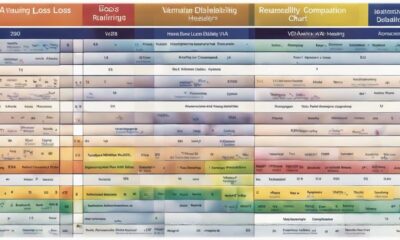
 Navigating the VA System4 weeks ago
Navigating the VA System4 weeks agoVA Hearing Loss Rating Chart: Understanding Disability Compensation
-
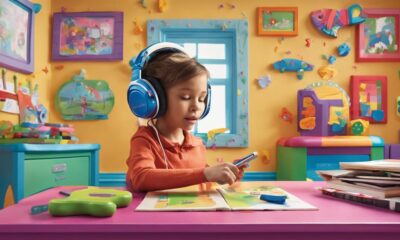
 Therapies and Interventions3 months ago
Therapies and Interventions3 months ago10 Auditory Processing Goals for Effective Speech Therapy
-

 Living with Hearing Loss2 months ago
Living with Hearing Loss2 months ago10 Deaf-Friendly Dating Sites to Find Your Perfect Match
-

 Sign Language3 months ago
Sign Language3 months agoSign Language Emoji Translator: How to Communicate With Gestures
-

 Tinnitus1 month ago
Tinnitus1 month agoVA's Rating System for Tinnitus and Hearing Loss Explained
-

 Navigating the VA System3 weeks ago
Navigating the VA System3 weeks agoUnderstanding Bilateral Hearing Loss VA Rating Criteria
-

 Vetted1 month ago
Vetted1 month ago15 Best Oticon Hearing Aids to Improve Your Hearing in 2024
-

 Living with Hearing Loss2 months ago
Living with Hearing Loss2 months agoAn Introduction to Deaf Culture: Understanding the Basics
